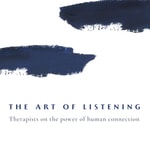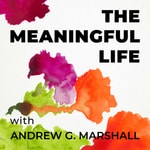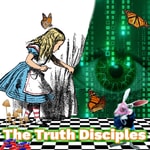The Art of Listening – Détails, épisodes et analyse
Détails du podcast
Informations techniques et générales issues du flux RSS du podcast.


Classements récents
Dernières positions dans les classements Apple Podcasts et Spotify.
Apple Podcasts
🇬🇧 Grande Bretagne - socialSciences
30/10/2024#77🇩🇪 Allemagne - socialSciences
08/10/2024#80🇩🇪 Allemagne - socialSciences
07/10/2024#64🇩🇪 Allemagne - socialSciences
06/10/2024#34🇺🇸 États-Unis - socialSciences
08/09/2024#86🇨🇦 Canada - socialSciences
04/09/2024#100🇬🇧 Grande Bretagne - socialSciences
04/09/2024#89🇨🇦 Canada - socialSciences
03/09/2024#79🇬🇧 Grande Bretagne - socialSciences
03/09/2024#61🇨🇦 Canada - socialSciences
02/09/2024#67
Spotify
Aucun classement récent disponible
Liens partagés entre épisodes et podcasts
Liens présents dans les descriptions d'épisodes et autres podcasts les utilisant également.
See all- https://www.eileendunnpsyd.com/
19 partages
- https://www.eileendunnpsyd.com/podcast
17 partages
- https://apsa.org/
7 partages
Qualité et score du flux RSS
Évaluation technique de la qualité et de la structure du flux RSS.
See allScore global : 79%
Historique des publications
Répartition mensuelle des publications d'épisodes au fil des années.
When All is Said and Done: Reflections on Healing and Lasting Connections, with Eileen Dunn
Épisode 21
jeudi 18 juillet 2024 • Durée 28:19
Listening – it’s the cornerstone of human connection, yet the intricacies of depth therapy often remain hidden behind closed doors, bound by confidentiality. What if we could bring these transformative conversations into the public sphere and reveal the true magic that occurs within the therapeutic encounter?
I’m Eileen Dunn, the voice behind The Art of Listening, and these are the very questions that led me to the creation of this podcast. As a psychoanalyst and clinical psychologist, my life’s work has been dedicated to uncovering the power of depth therapy, where the roles of speaker and listener are crucial to fostering personal growth and healing. Throughout this series, we've welcomed a range of guests, each with their own voice, insights, and experience. All committed to the human-to-human relationships at the heart of therapeutic transformation.
So to conclude this series today, I wanted to share my own story and reflect on the creative process behind this podcast. In this final episode, we embark on the personal journey that led me to the field of clinical psychology. We consider the moments of pain and triumph that shaped my approach and helped me form the big questions that have consistently driven my work. And as we come to a close, I’ll share what I’m taking away from each of our distinguished guests, to draw meaningful, long-lasting lessons from the Art of Listening.
Join me in this final episode as we delve into the heart of what makes listening so transformative.
Chapters
1 - The inspiration behind The Art of Listening
2 - Eileen’s background, upbringing, and journey to clinical psychology
3 - The magic of listening and connection between speaker & listener
4 - From “being” to “doing” - listening as openness to action
5 - The importance of human connection in a modern world
6 - Reflections and main takeaways from the series
Links
Key Words
Human Connection, Therapeutic Space, The Foundation of Psychoanalysis, Psychoanalysis, Psychology, Therapy, Connection, Mental Health, Wellness, Empathetic Listening Psychoanalytic Perspectives, Counseling Techniques, Humanistic Therapy, Mental Health Solutions, Therapist-Patient Bond, Talk Therapy Advocacy, Mindful Listening, Profound Healing, Personal Development, Meaningful Conversations, Mental Health History, Clinical Psychology, Therapeutic Practices, Compassionate Therapy, Healing Through Talk, Empathy, Suffering, Psychoanalytic Theory, Psychotherapy, Psychoanalysis, Therapeutic Techniques, Humanity in Therapy, Humanity, Mental Health Treatments, Patient-Therapist Relationship, Advocacy for Talk Therapy, Eileen Dunn, Depth Talk Therapy, The Art of Listening, Mental Health Insights, Active Listening, Deep Listening, Deep Healing, Personal Growth, The Art of Listening Podcast, Meaningful Interactions, Disconnect in Modern Society, Research and History in Mental Health
It’s All Feelings: Investigating Consciousness from the Brainstem to the Psyche, with Mark Solms
Épisode 20
jeudi 13 juin 2024 • Durée 49:32
We often think of our conscious experience as one driven by language. Our thoughts are shaped by words; our emotions processed in conversation. Yet, while language is a sharp tool for expression, the level of detail and nuance it affords us can also get us lost. And like many other animals, we communicate our needs before we’re able to speak. So what if consciousness, the quality of being us in the privacy of our mind, was in fact something else?
My guest today has spent 40 years investigating what it means to be at once a brain, a mind and a psyche. And he has done away with complexity to conclude: “it’s all feelings”.
Mark Solms is a renowned neuropsychologist, psychoanalyst, and researcher who has bridged the gap between two traditionally opposed disciplines: neuroscience and psychoanalysis. A pioneer in his field, and a true inspiration for many practitioners on both sides of the divide, Mark has shown that cognitive and analytical work are two sides of a coin, and that they have much to learn from each other.
In this episode of the Art of Listening, we let Mark Solms lead the way, to unpack his life's work. Drawing from difficult childhood experience, Mark reflects on what seeded his existential questions and led him to investigate the inner workings of the brain. Together, we get to grips with what constitutes a conscious experience, we question the legacy of Freud’s findings, and we tap into the power of Neuropsychoanalysis to enhance how we listen.
Join us for a fascinating conversation with Mark Solms, and reconcile the study of the subject with the study of the object; of the brain, with the psyche.
Chapters
1 - The accident that changed Mark’s childhood
2 - First forays into neuroscience: daring to leave the beaten path
3 - “Neuropsychotherapy” or how a new discipline is born
4 - How cognitive and analytic approaches can benefit each other
5 - Consciousness and language beyond verbal communication
Links
Finding Love in Difference: A Queer Lens on Psychoanalysis with Justin Shubert
Épisode 11
jeudi 8 février 2024 • Durée 29:06
Love and belonging are some of the fundamental human needs necessary for survival. But as profound as they are, living with others, resonating with them, and “fitting in” is a delicate balancing act. Our sense of identity is deeply influenced by the acceptance, comfort, or rejection we experience from those around us, but certain aspects of ourselves will not align comfortably with others.
As psychoanalysts, we are mindful of acceptance and the foundation it provides clients to explore their thoughts, emotions, and vulnerabilities. We know that social norms of gender, sexuality, class and race are engrained deeply in our lives, and can keep us from living authentically, causing deep emotional wounds, eroding self-esteem, and hundering personal development. In the field of psychoanalysis, new voices are emerging to broaden the conversation surrounding these issues. Amongst them is Justin Shubert, a clinical psychoanalyst based in Silver Lake, Los Angeles.
In this episode of The Art of Listening, Justin shares his personal journey as a queer man navigating the field of psychoanalysis – first, as a patient, and then as a clinician. Together, we talk about queer theory, identity and power, and Justin shares his unique perspective on acceptance and belonging in a field that has historically grappled with conflicting opinions around subjects such as sexuality and gender. Justin also reflects on what led him to find a supportive community within the American Psychoanalytic Association's Committee on Gender and Sexuality, and discusses his ongoing efforts to create a space of acceptance, diversity, and inclusivity within his own practice.
Tune into our conversation to discover the power of acceptance and community in embracing differences.
Chapters
1 - Justin’s first contact with psychoanalysis: from experience, to intellect (03:55)
2 - Reflecting on foundational experiences of queerness (7:25)
3 - Understanding queer theory and identity (11:43)
4 - Challenges and “resistance” to queerness, gender and sexuality theory in psychoanalysis (14:05)
5 - Finding and building a queer-conscious community in psychoanalysis (20:06)
6 - Listening with a queer approach: how Justin listens to his patients (23:08)
Links
The Healing Power of Truth: Making Contact Where Suffering Lies with Gloria Myers Beller
Épisode 10
jeudi 25 janvier 2024 • Durée 36:31
The field of psychotherapy and analysis is a dynamic space that constantly evolves, and we are all determined to embrace these changes authentically. Over the past 31 years, Gloria Myers Beller and I have been sharing genuine, profoundly authentic conversations. The depth and breadth of our discussions as colleagues and true friends is a big part of what has inspired me to create The Art of Listening.
As a seasoned psychotherapist, Gloria has spent over 50 years amassing wisdom in the field. As she cared for patients in a range of settings – and ultimately in her independent practice – she came to understand how pain constitutes the heart of the human experience.
In this episode of The Art of Listening, Gloria guides us through her own history of therapeutic practice. She illuminates the pivotal role authenticity plays in the therapeutic setting and the healing ability of truth. Drawing from her rich experiences and her own background as an African American woman from the segregated South, Gloria has cultivated a deep understanding of suffering as a universal point of contact among human beings. It is through this understanding that she has found the path to empathy, allowing her to connect with her patients on a profound level across decades and ‘meet them where their suffering lies’.
Chapters
1 - Gloria’s early work in the emerging field of social work and psychotherapy
2 - The evolution of the psychoanalytic work and moving into private practice
3 - Understanding the benefits and limitations of private practice for psychoanalytic treatments
4 - Using suffering as the universal point of contact in psychoanalysis
5 - Gloria’s personal background and its influence on her approach to her work
6 - Developing a practice grounded in authenticity and connection
Links
Endings and Beginnings: Retirement as Reinvention with Marti Peck
Épisode 9
jeudi 11 janvier 2024 • Durée 31:14
Among the myriad of beginnings, endings, losses and changes that punctuate our lifetimes, few are as challenging as the act of bidding farewell to a long and rewarding career. Over the years, substantial time, labor, and heartfelt devotion are invested, forging identities and finding purpose. So when the familiarity, the comforting sense of routine, and the deep relationships we have nurtured come to an end, we can experience emotions reminiscent of grief and loss.
But the end of a career also signifies the dawning of a new chapter, brimming with possibilities to explore untapped passions or embark on new adventures. For analysts, the transition to retirement entails discovering who they are once they have left the analyst's chair. And for Marti Peck, it was a true opportunity for reinvention. Marti began her journey in the field at the tender age of 18, commencing an illustrious career that would span over 40 years, including 30 years in private practice. Recently, Marti gracefully said her final goodbyes and retired from a distinguished career in psychoanalysis.
In this episode of The Art of Listening, Marti walks us through the thoughts and feelings that accompany this profound life transition. Marti shares her wisdom on the intricate and profound relationship that therapists develop with their patients; she explores the challenges of releasing responsibility and connections. She depicts her own journey of introspection, emphasizing the vital importance of listening to oneself, discerning limitations, and recognizing individual capabilities.
Join us as we discuss Marti's life long career, and explore how she continues to harness her psychoanalytic wisdom even in retirement, as the practice never truly ends.
Chapters
1 - How Marti approached her retirement, and the emotions that follow change
2 - The responsibility therapists feel for their patients
3 - Marti’s life after retirement, and the separation of personal and professional identity
4 - Viewing retirement as a new beginning
Links
Holiday Greeting
Épisode 8
jeudi 28 décembre 2023 • Durée 02:22
We are wishing all Art of Listening listeners a Merry Christmas and a Happy New Year as we return with more new episodes in 2024. Stay tuned!
Between Body, Mind, Heart & Soul: Expressing and Connecting with Johanna Arenaza
Épisode 7
jeudi 14 décembre 2023 • Durée 33:24
What does it mean to truly know who you are? How do you represent you to you? As we navigate our lives, we find ourselves constructing an identity through expression; assembling a mosaic of behaviors, interests, and beliefs. These characteristics, Johanna Arenaza refers to as 'body, heart and soul.’
Johanna is a practicing psychoanalyst, an award-winning and internationally competitive dancer. Between her home country of Spain and her adopted home in the US, she has developed her psychoanalytic practice while pursuing her own journey of self-discovery.
In this episode of The Art of Listening, Johanna shares how an early passion for the art of dance led her into a cycle of burnout, questioning her sense of self. After pivoting and training as a Psychoanalyst, Johanna found a new facet of her identity where she could exercise her intelligence and mental resilience. But with each new discovery, Johanna felt unrest in the separateness of all the parts of herself, yearning for a sense of unity.
With Johanna today, we uncover how expression can lead us to believe that we are firmly represented; and that this newfound identity can be as restrictive as it is liberating. Through her lifelong journey, Johanna will show us that a true sense of who we are comes from accepting our shifting nature. Walking us through what it means to connect with others, and with ourselves, she reveals that cultivating self-reflection and awareness will land us to a sense of true harmony.
So join us in discussion with Johanna Arenaza, as we explore what it means to listen in, and speak our inner truths with body, mind, heart, and soul.
Chapters
1 - Dance as an instrument for communication and bodily connection (4:00)
2 - Dance burnout, and exploring intellectual agility through Psychology (7:41)
3 - Silence as a form of communication (13:14)
4 - Introspective listening and reflection through meditation (23:23)
5 - How Johanna found self-fulfillment through mental, physical, and spiritual harmony (29:06)
Links
I Could Be You, You Could Be Me: Embracing Our Shared Humanity with Koichi Togashi
Épisode 6
jeudi 30 novembre 2023 • Durée 37:55
Knowing others is a fundamental part of our human experience... But it is also an impossible task. And while empathy brings us closer to understanding this ‘otherness’, it still maintains a quality of difference –that those we empathize with are inherently distinct from ourselves.
But perhaps there is a space within our minds where we can understand each other simply as we are, or once were, before we shaped our own journeys – as equals, as solely human. This place, where all humanity is shared, is what Koichi Togashi refers to as 'The Psychoanalytic Zero'.
In this episode of The Art of Listening, Koichi recalls his journey into the field of Psychoanalysis. He tells us how he learned to balance Eastern and Western perspectives between Japan, his native country, and New York, his adopted city. Koichi also describes how his own quest for acceptance and understanding fueled his need to create his own theory. Together, we learn how the ‘Psychoanalytic Zero’ considers the complexities of division and difference while uncovering the underlying threads that bind us all together in the tapestry of the universe.
Chapters
1 - Finding balance between Eastern and Western practices (4:07)
2 - The relationship between trauma, empathy and the Psychoanalytic Zero (13:35)
3 - In practice: the Psychoanalytic Zero as a philosophy (18:30)
4 - Difference in practice and approaches to trauma in Japan (22:22)
5 - Makoto: the potential of letting go (28:25)
Links
Grief as a Catalyst: The Philosophical Dimensions of Mourning with Jonathan Lear
Épisode 5
jeudi 16 novembre 2023 • Durée 37:35
The weight of grief descends upon us all at some point in life. It arises from loss, whether of people or parts of ourselves we can no longer recognize.
When it comes to the unbearableness of grief, our primal instincts may be to swallow the feelings and push forward. But it is only when we allow the feelings of mourning and embrace what loss means that we can unmask the transformative nature it holds.
Through his extensive body of work teaching philosophy, practicing psychoanalysis, and publishing a series of books on the topic, Jonathan Lear has taken all he has come to know and study about grief and used it to analyze his own deeply personal confrontation with the mourning process.
In this episode of the Art of Listening, Jonathan will take us on a historical journey from ancient times to modern day as he discusses his studies that tie together the practices of philosophy and psychoanalysis, the importance of dialogue in thoughtful discovery. We’ll also learn how these studies provided Jonathan with the foundation to form his own philosophical findings on the process of grief and mourning.
Chapters
1 - Jonathan’s international philosophy studies (3:24)
2 - How philosophy led Jonathan to psychoanalysis (6:19)
3 - Where ancient philosophy and modern psychoanalysis intersect (8:59)
4 - The role narratives play in the psychoanalytic setting (14:01)
5 - Grief and mourning, and maintaining hope in human life (25:22)
Links
The Call of the Soul: Connection as a gateway with Dan Perlitz
Épisode 4
jeudi 2 novembre 2023 • Durée 31:34
Throughout our lives, in our quest for meaning, we often seek out intellectual pursuits, believing that the more we know, the more we will be able to understand ourselves and the world around us.
While education equips us with theoretical knowledge, an excessive emphasis on intellectualism can overshadow the profound growth opportunities pure human connection is capable of, which often transcends the confines of logic. Similarly, we can only get so far analyzing our own internal thoughts, emotions, and behaviors. Genuine self-understanding requires more than just introspection.
During his professional life, Dan Perlitz came to realize that while business ventures and academia benefitted personal growth, they still couldn’t satisfy his desire for true self-understanding.
Dan is a physician, a former family doctor and real estate developer, and now a practicing Self-Psychological psychoanalyst in full-time practice in Toronto, Canada. Through his own experience with therapy, he realized the one crucial element missing in his search for meaning: an unbiased perspective.
In this episode of the Art of Listening, Dan will tell us about how his unwavering commitment to find personal meaning led him to therapy, and to becoming a therapist after years in the business sector. He’ll explain the value an unbiased vantage point offers, and how human-to-human connection is the catalyst necessary to ultimately unleash our true potential for self-discovery and growth.
Chapters
1 - Dan’s transition from Business to Psychology (3:10)
2 - Over-Intellectualism in therapeutic practice (9:11)
3 - How Dan found a greater meaning through Psychology (13:40)
4 - Why Empathy is not value-neutral (22:29)
Links








